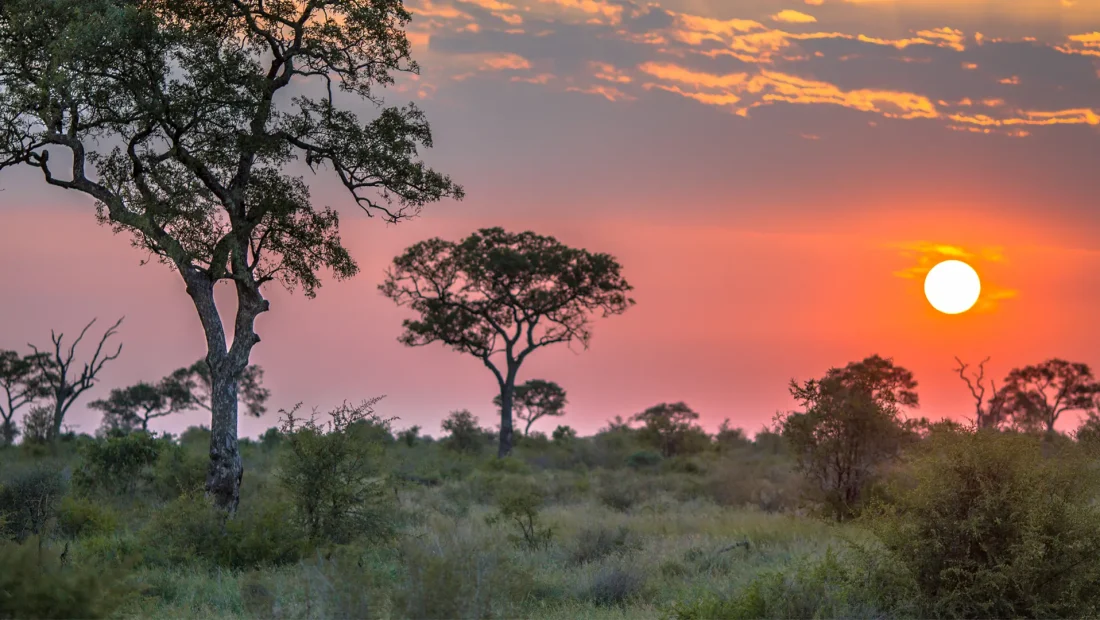
NEW NARRATIVES: WEBINAR 02 DISCUSSION
'Addressing Wildlife Crime - Good News from the Kruger'
In the opening Khetha Webinar 01, dubbed 'Shades of Grey', we learned that wildlife crime is complicated and hard to beat. However, the Greater Kruger offers many stories of progress towards a safer and more secure region for both people and wildlife. In this follow up Webinar 02 - 'Good news from the Kruger' seasoned wildlife crime researcher, Julian Rademeyer, chatted to Sharon Haussmann, chief executive of the Greater Kruger Environmental Protection
Foundation (GKEPF), about innovative projects and strategies that are having a positive
impact.
Please watch the webinar and join our follow up discussion.
WEBINAR 02 DISCUSSION
• What, for your personally, was a key take-home message in this webinar?
• What stories could be written that delve deeper into the “Good news from the
Kruger” theme?
• What social impact does wildlife crime have on communities in the Greater
Kruger?
Training the next generation of science graduates, journalists, and conservationists to create an impact on environmental, social, and justice issues in South Africa. If you are interested in partnering with us, please get in touch.
GET IN TOUCH
+27 (0) 83 277 8907
info@rovingreporters.co.za
108 Groom St, Black Rock, Port Edward
Kwa-Zulu Natal, South Africa, 4295
ARCHIVES
Sorted by Month
This site was designed in partnership with




People reacted to this story.
Show comments Hide commentsWildlife crime in the Greater Kruger region has significant social impacts on communities. Locals\’ livelihoods are impacted by the poaching-related loss of wildlife since they rely on natural resources for their food, income, and traditional customs. Food insecurity and economic instability may result from this. Furthermore, wildlife crime can exacerbate organized crime and corruption, further eroding community stability. Moreover, the tourism sector, which provides a significant source of income and employment possibilities for a large number of the local population, is endangered by the poaching-related depletion of iconic species. Furthermore, the loss of wildlife can have a negative influence on local communities\’ traditional customs and sense of identity by upsetting their spiritual and cultural legacy. Overall, wildlife crime has a significant negative impact on the social cohesion and general well-being of communities in the Greater Kruger area, in addition to negatively affecting the ecosystem and biodiversity.
One of the take-home messages for me was when Sharon Hausmann mentioned the importance of being honest when it comes to conservation approaches such as the ones GKEPF takes. Collaborating, communicating and connecting everyone who is involved in these kinds of operations is so important- it’s a community effort that requires everyone to be on the same page, with open communication throughout their organisation.
Ja, a lot of what Julian and Sharon chatted about left me wondering about what strategies and projects that are having positive impact in the Greater Kruger, could be applied elsewhere, for example in and around the Hluhluwe-iMfolozi Park in KZN where efforts to promote the welfare of this exceptionally important wilderness, and the well being of people surrounding the park, have been somewhat overshadowed by a protracted dispute – and millions spent – in trying to close down a coal mine on the border of the park.
I guess a lot of this boils down to carefully choosing what battles one can realistically win – and of course better management of the park?
Collaboration and unity amongst stakeholders, both public and private, have been critically important in making progress against wildlife crime and broader socioeconomic challenges. Groups like GKEPF, which was the first time hiring about it, facilitate important coordination.
Long-term strategies addressing root causes like poverty, lack of economic opportunity, and weak governance are needed in addition to anti-poaching tactics. Community development programs can play a role.
Two main themes stuck out for me, honesty and collaboration. Through these they were and are able to objectively reflect on both their successes and failure. I found the emphasis on the informal idea shares and helping each other, such as in the anecdote about tyres to be an especially interesting point to explore.
Ok, this is a tad grisly. We have heard from Julian that there is direct link between human trafficking and the illegal wildlife trade between Mozambique and SA. Now I am told that this trafficking allegedly includes trade in body parts. It’s the subject of ongoing research.
This does not quite tie into the good news from Kruger stories we are currently searching for in this chapter of the project, but it does provide context as to why stories of progress towards a safer and more secure region for both people and wildlife assume particular significance. – Fred K
Wildlife crime in the Greater Kruger area can affect communities a lot. It can make people lose their jobs if they depend mostly on tourism or conservation jobs. This can make poverty worse and cause fights between communities. Also, it can affects local resources and how
people do things, making life
harder for communities to support
their families.
I agree with Savanna. For me a Key take-home message was that different teams working together in achieving a certain goal is more effective than working in silos. Sharon mentioned that close working relationships are extremely important in response to wildlife crime and that stretches beyond partners in the open system of Kruger, its working together with the government, Citizen forces etc. A big change is made in unity.
The key-take home message was \”Don\’t go down the negative rabbit hole\”
A story that could be written that would delve deeper – The Ranger Wellness Program
Social impact of wildlife crimes on the communities in the GK – Is it measurable?? Has it actually been measured scientifically?? Maybe another story 🙂
The GKEPF approach of prioritizing not only animals but people too was one of my take-home messages. It is an impressive angle and refreshing when you consider the complexities involving the links between the people and wildlife conservation.
Secondly the decrease in rhino poaching and the de-horning strategy. Which seems to have positively discouraged these crimes. I am particularly interested in the upcoming results from the study and facts about the impact of de-horning.